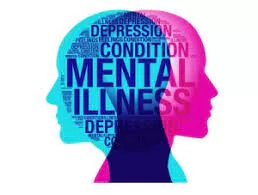A groundbreaking study published in the journal Nature Mental Health has shed light on the profound impact of childhood bullying on the development of mental health issues in adolescence. Researchers from the University of California-Los Angeles (UCLA) in the US and the University of Glasgow in the UK examined data from 10,000 children in the UK, revealing a concerning link between peer bullying, interpersonal distrust, and clinically significant mental health problems.
The study, believed to be the first of its kind, underscores the long-term consequences of bullying, with children who experience such behavior being 3.5 times more likely to develop severe mental health issues by age 17. These problems include anxiety, depression, hyperactivity, and anger, highlighting the urgent need for effective interventions to mitigate the adverse effects of bullying.
Dr. George Slavich, director of UCLA Health’s Laboratory for Stress Assessment and Research, emphasized the significance of the findings in addressing youth mental health. “There are few public health topics more important than youth mental health right now,” stated Slavich, emphasizing the critical need for research to identify risk factors and develop prevention programs to improve lifelong health and resilience.
While prior research has established the association between bullying and various mental health issues among youth, this study stands out for tracing the pathway from bullying to distrust and subsequently to mental health problems in late adolescence. The findings underscore the importance of addressing interpersonal trust as a key factor in combating the negative impact of bullying on mental well-being.
Slavich highlighted the need for school-based programs aimed at fostering interpersonal trust among students, particularly during critical transitional periods such as the move to high school or college. These programs could play a crucial role in creating supportive environments that nurture close and enduring relationships, thus mitigating the adverse effects of bullying on mental health.
Importantly, the study found that while factors like diet, sleep, and physical activity were examined, only interpersonal distrust emerged as a significant mediator between bullying and subsequent mental health problems. This emphasizes the need for targeted interventions focusing on building trust and supportive relationships within school settings.
The implications of this study are profound, signaling a call to action for educators, policymakers, and healthcare professionals to prioritize interventions that address the root causes of bullying and support the mental health needs of children and adolescents. By fostering environments of trust and support, we can empower young individuals to navigate the challenges of adolescence with resilience and well-being.












